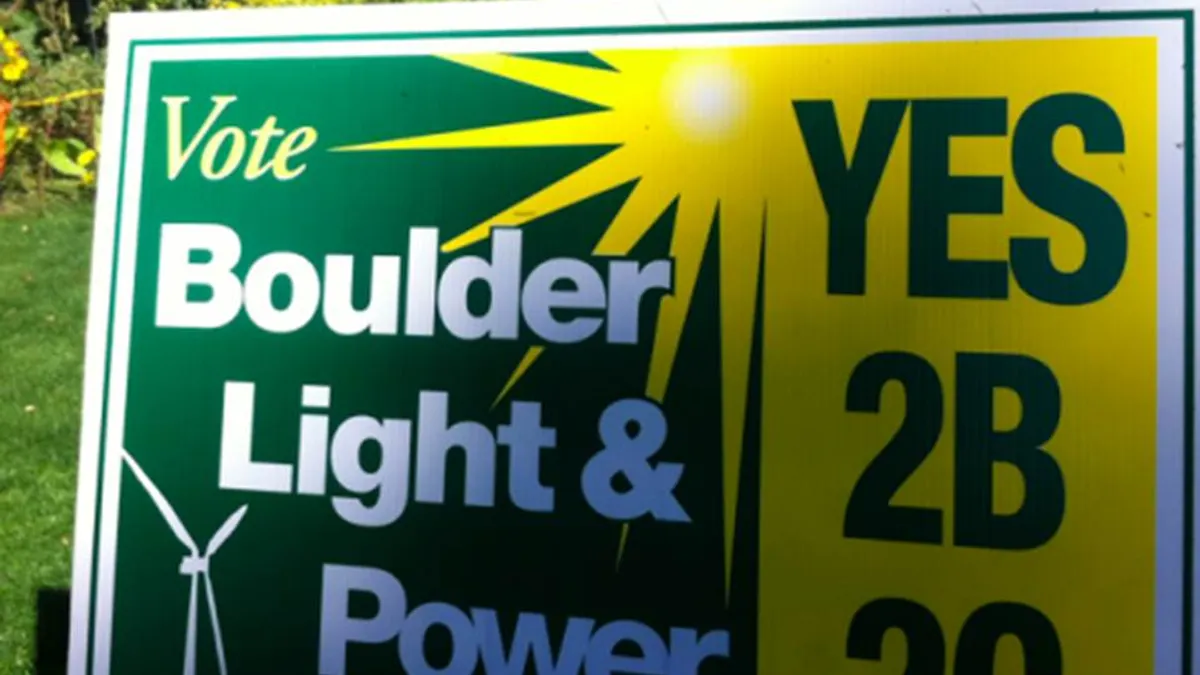Dive Brief:
- The Colorado Public Utilities Commission will decide today whether to reject as incomplete the city of Boulder's proposal to develop a municipal utility, SNL reports.
- Staff of the PUC has recommended rejecting the city's plan, saying more details were needed on how Boulder would facilitate the split from Xcel Energy, the incumbent provider.
- The city has since asked for time to supplement its application, indicating it is amenable to alternative methods of developing and administering the muni system's service territory.
Dive Insight:
Colorado regulators will take up a recommendation today -- proposed by their own staff -- to dismiss the city of Boulder's application. But since staff's recommendation was published in August, the city has campaigned for more time, saying it will embrace a number of alternatives as to how the system will be run.
The city filed a request to supplement its application a week ago.
In July, Boulder requested the PUC transfer assets from Xcel energy that included what the city believed was the "technically optimal, safest and most reliable way to interconnect a city-owned electric system and Xcel’s system,” said Heather Bailey, Boulder's executive director of Energy Strategy and Electric Utility Development.
“Since then, questions have arisen about whether it is the best approach given current regulations and the responsibilities of the PUC," she continued in a statement. "This supplement makes clear that Boulder is collaborative and open to a variety of methods that would protect all potential customers while also achieving our community’s energy goals."
Among the possible alternatives, Boulder said it would be open to wheeling power to its in-city customers over lines owned by Xcel Energy where feeders pass outside the city’s boundaries before reaching those customers.
"The utility with the majority of customers on an individual feeder line could own that feeder and allow the other utility to wheel power over that feeder to serve its customers," the city said. "Modifications could be made to the location and number of points of separation of the city’s and Xcel’s systems."
Boulder also said additional facilities could be constructed to address specific customer locations, and an interim plan could incorporate distribution wheeling by both the city and Xcel, "to allow for an orderly transition and separation."
The city has asked that Xcel continue supplying Boulder with electricity for a five-year term as they transition to a municipal utility. The case has since become more complicated since regulators allowed five additional parties to join the proceedings in August. Observers say they don't expect the case to wrap up before 2017.














